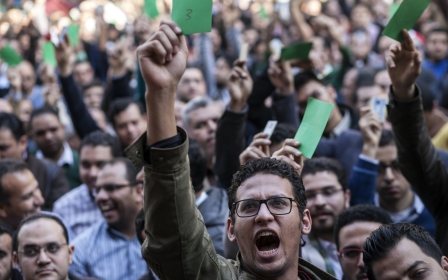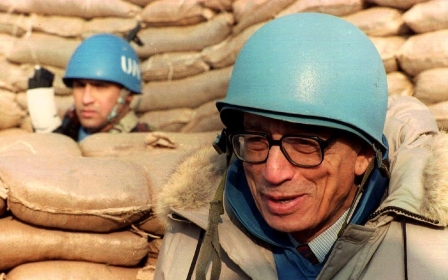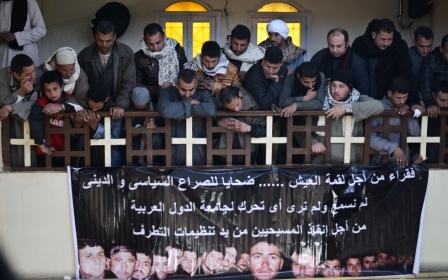Prominent Egyptian journalist Mohamed Heikal dies at 92

Veteran Egyptian journalist Mohamed Hassanein Heikal, one of the Arab world's most prominent political commentators and a former adviser to president Gamal Abdel Nasser, died on Wednesday at 92 years-old, state media reported.
Heikal served as editor-in-chief of the state-owned daily al-Ahram from 1957 to 1974, and under his tenure it was considered the region's newspaper of record.
He had been ill for three weeks, and suffered fluid in his lungs and kidney failure, al-Ahram reported on its website.
Heikal, who was born in the Nile Delta province of Qalubiya on 23 September 1923, authored more than 10 books on the conflicts and political intrigues of the region.
He was a close associate of Nasser, who ruled Egypt from 1954 until his death in 1970, serving as his information minister and for a brief period of two weeks also as his foreign minister.
He initially backed Nasser's successor Anwar al-Sadat, but was jailed in September 1981 after falling out with the president, who signed the first Arab peace treaty with Israel.
He took to the sidelines during Hosni Mubarak's three-decade rule, but would sometimes give interviews.
Speaking to British newspaper The Independent in 2007, he criticised the autocrat, who was toppled in a popular uprising four years later.
"Let us face it, that man was never adjusted to politics," he said of the former general, who succeeded Sadat after his assassination in 1981.
In December 2015, Heikal called on President Abdel Fattah al-Sisi to hold a political dialogue to tackle the country's crises, ranging from an economic downturn to militant attacks and political unrest.
Sisi, the former military chief, had overthrown Egypt's first democratically elected president, Mohamed Morsi, in 2013, unleashing a bloody crackdown on Islamists while contending with a militant insurgency in the Sinai Peninsula.
The crackdown has extended to secular opponents.
"There are many people who accept what is happening, because the alternatives are bad, and they have experienced the alternatives," Heikal said in an interview with an Egyptian television host.
But "there has to be a dialogue between all national forces ... with representatives," he said.
A statement from Sisi's office eulogised Heikal as having "enriched Egyptian and Arab journalism with his writings".
New MEE newsletter: Jerusalem Dispatch
Sign up to get the latest insights and analysis on Israel-Palestine, alongside Turkey Unpacked and other MEE newsletters
Middle East Eye delivers independent and unrivalled coverage and analysis of the Middle East, North Africa and beyond. To learn more about republishing this content and the associated fees, please fill out this form. More about MEE can be found here.




